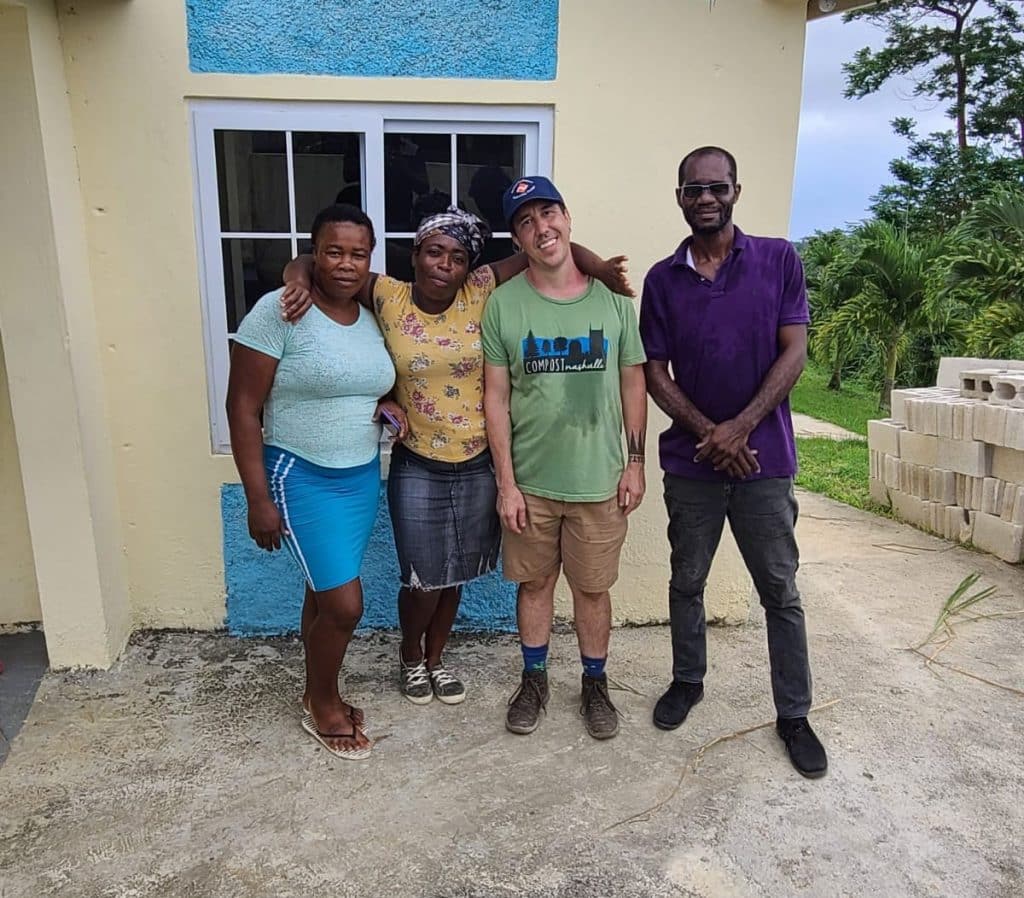
Jamaica is a vacation destination for most people.
I recently got the chance to spend two weeks there volunteering my time to teach farmers as part of a government program called Farmer To Farmer through Partners of the Americas. This blog about my time in Jamaica is unlike most others that involve worms or soil biology in some way, we think you will enjoy it nonetheless.
Farmer to Farmer
Our previous article titled “Organic Nitrogen & Microbes”, discusses how the 2022 conflict in Ukraine has caused higher-than-ever fertilizer prices thanks to high fuel costs and Russia’s status as the world’s #1 exporter of nitrogen-based fertilizers. Among the hardest hit were poor Jamaican growers.
Local outreach agencies sought a more affordable and regenerative approach to growing. They put the call out in search of someone capable of traveling around Jamaica, teaching local farmers how to transition away from chemical agriculture towards a more organic approach. Worm Farmer’s Handbook author Rhonda Sherman was asked by USAID and recommended me to fulfill the assignment.
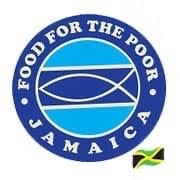
USAID, along with Partners of the Americas, have a program called Farmer To Farmer that works with local farmers in less fortunate countries. This assignment involved another group called Food For The Poor Jamaica, the largest charity organization in Jamaica, which works to help with farming, fishing, and housing. We encourage you to check out these programs independently to see all of the amazing aid they provide to people in need.
The assignment involved spending two weeks in Jamaica, visiting several parishes and four groups of farmers to teach for two days per group. I had the goal of instructing them how to make use of soil biology through compost, liquid compost extracts, and organic forms of nutrients. As a result, they can slowly transition from growing with chemicals to growing with biology. By making compost with materials that can be found for free. The only expense to growers is their time committed to collecting ingredients and making compost.
Welcome To Jamrock
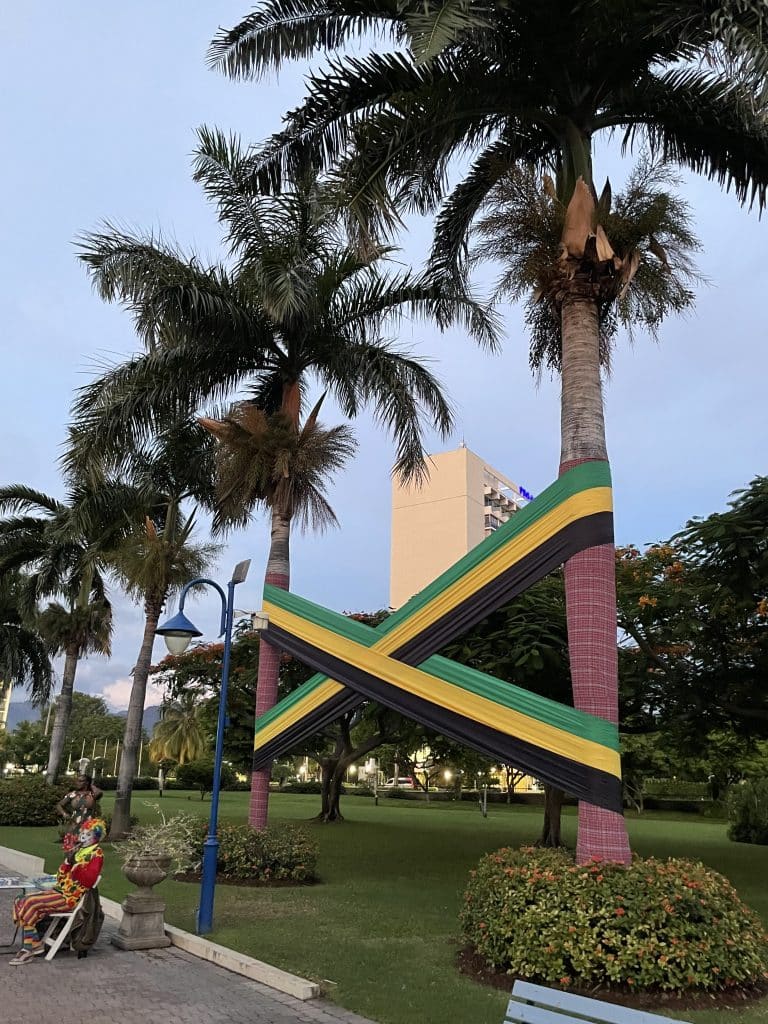
I flew into Jamaica’s capital city of Kingston on Sunday, September 11, 2022. Driving into the city from the airport, one sees a giant concrete plant along the shore with large mined tracts of land behind the facility. I was told that 90% of homes in Jamaica are made of concrete and that the country supplies concrete for all of the Caribbean.
It was late afternoon by the time I arrived to the hotel. My first night I wandered to a nearby jerk shack to get some food. It sat adjacent to “Emancipation Park”, a large park surrounded by a wrought iron fence. Inside a walking track circles the perimeter, statues of the busts of well-known Jamaicans stand along the main walkway, followed by a circular pool with fountain, and then a small bandshell. Independence Day had just been celebrated on August 6 and there were still fiber arts in the colors of the Jamaican flag hanging between two palm trees. I sat for a while eating my food, taking in the scene and culture.
Partners of the Americas Jamaica Farmer-To-Farmer
Monday morning I met with Marsha Johnson, the Country Director for Partners of the Americas, along with my field advisor, Damar Wilson. He would be accompanying me and driving me throughout my time traveling and teaching. Damar has a degree in Environmental Biology and specializes in agriculture. He made a true difference with my time in Jamaica. From assisting me to gear my presentations to a particular region’s crops, to helping me take a deep dive into the culture by suggesting traditional foods.
RADA: Rural Agricultural Development Authority
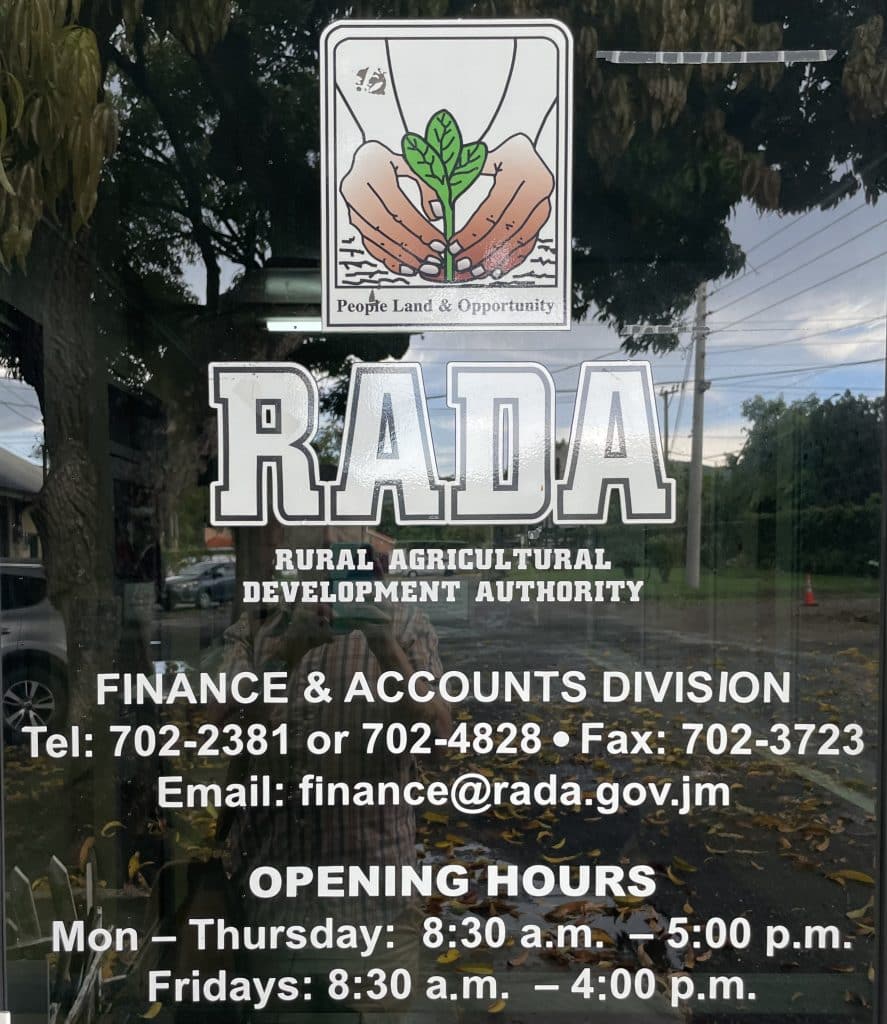
After my initial meeting at the Farmer-To-Farmer office, Damar and I drove to the office of RADA, the Rural Agricultural Development Authority. There I met with a couple of people from RADA as well as two individuals from Food For The Poor. I went over my presentations and goals for teaching. This was followed by a discussion on how these groups can continue to encourage and offer assistance to farmers regarding the approach to biological growing that I was providing.
Both of these groups have field officers who meet with farmers regularly in order to see how they may offer guidance or programs that provide assistance for procuring farmer’s needs.
After our meeting, Damar and I hopped in the Toyota HiLux and made the two hour drive northbound to stay in Browns Town in the parish of St. Ann. We spent the next eight nights staying at New Meditation Heights Hotel. Perched high on a hill, the hotel overlooks part of the city as well as the surrounding countryside, with views extending out over the ocean. There was even an avocado tree right across the parking area from our rooms.
Thatchwalk
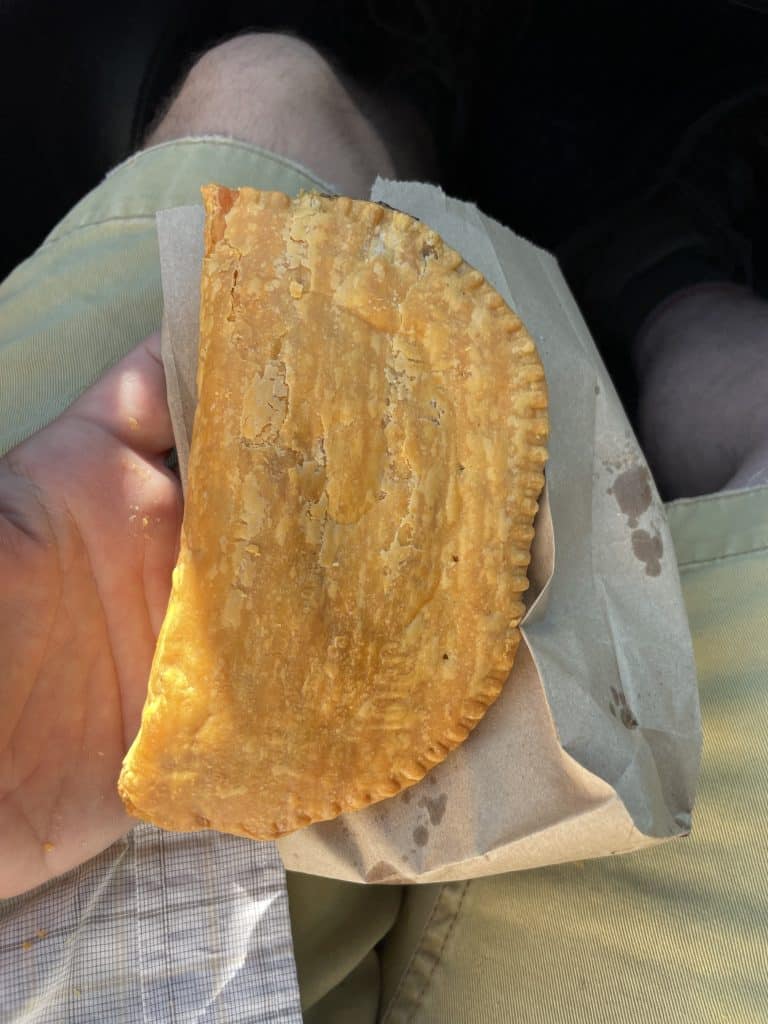
My first class was in a remote area at a one-room church in a location known as Thatchwalk. We picked up cheese patties for breakfast. They are basically a fried savory meat pie with cheese. A popular breakfast item for Jamaicans.
Driving in Jamaica, especially in the country, is a true experience. Roads do not have lines and are barely wide enough for two cars to go by each other. Jamaicans have a much smaller personal space bubble in their vehicles, driving mere inches from opposing traffic.
We had a real adventure on the way to our first official day of teaching.
What Just Happened?
On our way to Thatchwalk a motorcycle cop zipped around our truck throwing his open palm out for us to halt. He drops his bike, draws his gun, cocks it loudly, and starts to yell at the car behind us. At the same time, an undercover cop happens to be in the first car of the approaching traffic. He also jumps out, draws his gun, and joins the uniformed officer in yelling at the driver in the car behind us. The driver became aggressive and physical, pushing back against the two officers, eventually getting taken to the ground while being handcuffed.
Damar and I looked at each other in wonder, ready to hit the gas if things got bad. The cop had basically used us as a road block, I guess assuming there would be no physical harm to the two of us. Either way, it was an eventful start to the day.
First Class
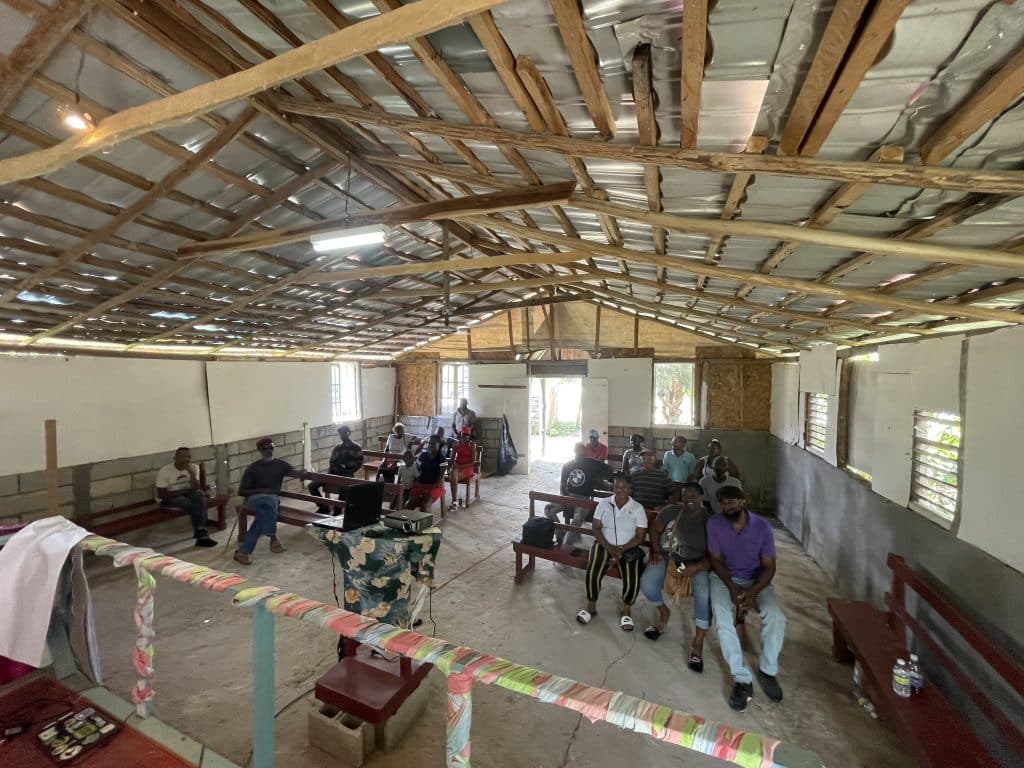
Both day’s classes in Thatchwalk were lead with a reading from the Bible along with a prayer, a first for me. I had planned two days worth of presentations, offering plenty of knowledge, along with demonstrations of some useful hands-on things like making a compost extract. I wasn’t able to rely on technology as there was no projector and no Wi-Fi.
My experience with audiences in the U.S. is that they soak up all of the nerdy theoretical knowledge and therefore I had planned similar presentations for the Jamaican farmers. It was determined from feedback that Damar received after the two days that these farmers wanted strictly practical knowledge which they could start putting to use. I would have to revamp my entire approach and presentations.
We were gifted with avocados (they call them pears), bananas, plantains, and a paw paw by the local farmers. The Jamaican countryside is full of fruit trees of various kinds. All one has to do is walk out of their home and go within a few hundred feet before finding something natural to eat.
Discovery Bay
Our hotel in Browns Town was 15 minutes drive to a nearby beach so we decided to check it out after our first day of class. Discovery Bay is a beach that pretty much only locals visit, as it is a bit hidden away at the end of a dead end street. The beach was surrounded by bars and food shacks, all painted black, gold, and green with reggae and dancehall blasting from a nearby speaker.
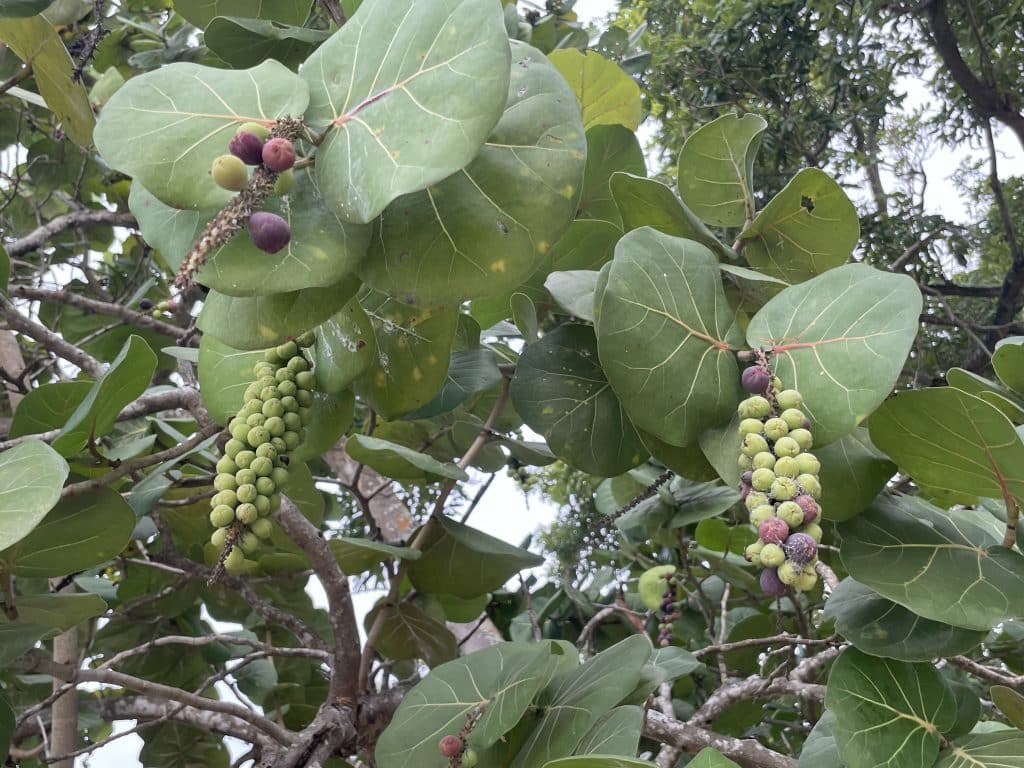
Damar and I had not brought any swim trunks with us but it didn’t matter. We plunged into the refreshing water to enjoy the afternoon sun. As soon as I walked into the water I saw a stingray swim within five feet of me, followed by a school of three-feet-long fish that were patrolling the shallow waters. As we were drying off after our swim, Damar showed me a tree on the beach with small fruits known as “sea grapes”. The sweet taste of the fruit combined with the salty taste of the ocean on my lips was delightful.
Preparing For The Second Class
That night (and several more to come) we got dinner from a local restaurant which cooks homemade traditional Jamaican fare over a wood-fired stove. I chose fried fish with rice for my first meal there. My favorites would be stewed pork and stewed beef. The next day we would be off to a new class location and I needed to rework my entire presentation.
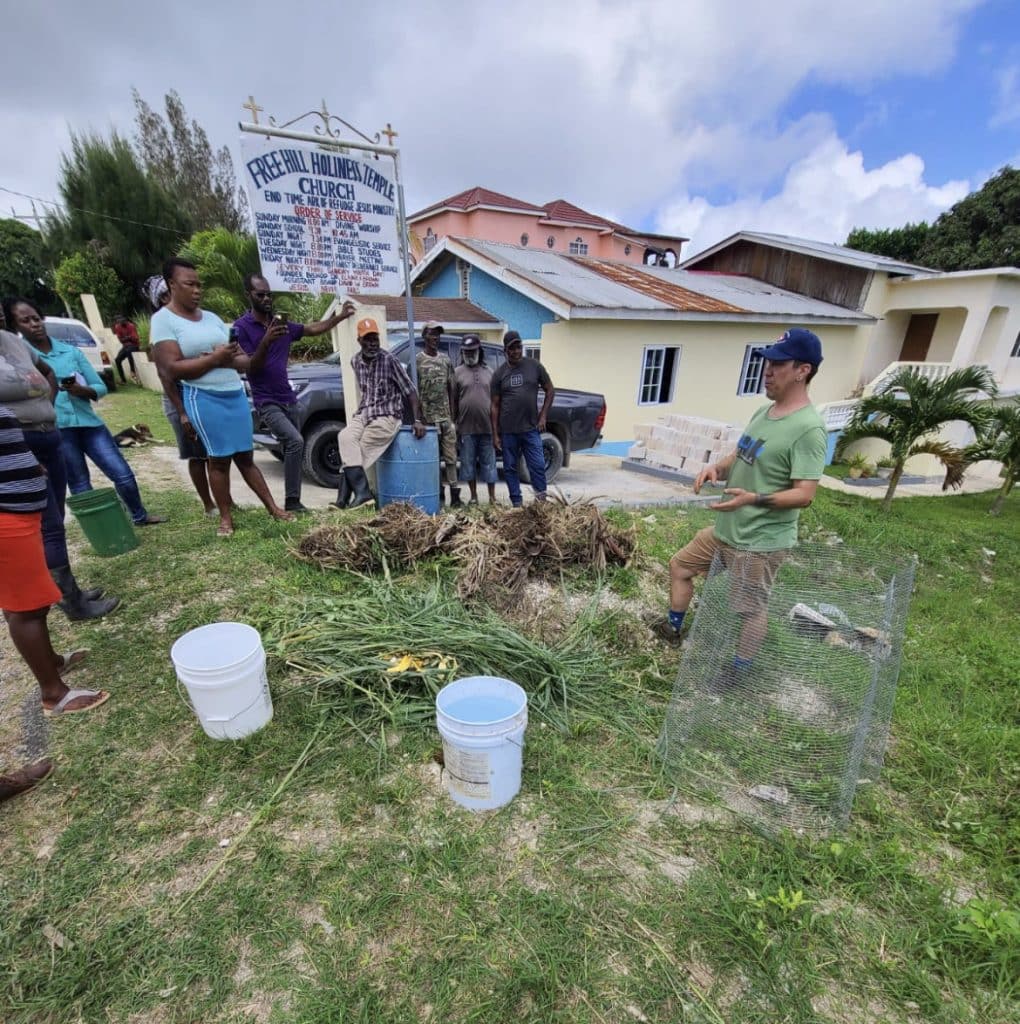
I pared my lessons down to have one day of presenting on soil food web knowledge, compost making, compost extracts, and a Korean Farming method for extracting calcium using egg shells and vinegar. Many Jamaican farmers grow peppers which are highly susceptible to blossom end rot. Using calcium as a preventative measure helps to reduce the susceptibility.
The second day of each class would be a practical, hands-on day. Through the assistance of the farmers we would make compost and learn how to manage it to make the most of the biology within. I would then show them how to make and apply a compost extract as an extremely affordable, all-natural means of fertility. Lastly, we would make a calcium extract which involves heating crushed eggshells then adding vinegar. A chemical reaction with the acidic vinegar pulls calcium from the eggshells, leaving one with a concentrated form of calcium that can be diluted in water and applied to soils.
Free Hill
We arrived to the Free Hill Holiness Temple Church at 9am to start the second set of classes. The church is a cement structure including a sanctuary with a tile floor that was being mopped as we arrived. The ocean can be seen from the position of the church atop a mountain. The first thing I did was to gather a sample of some fungi to include in my talk.
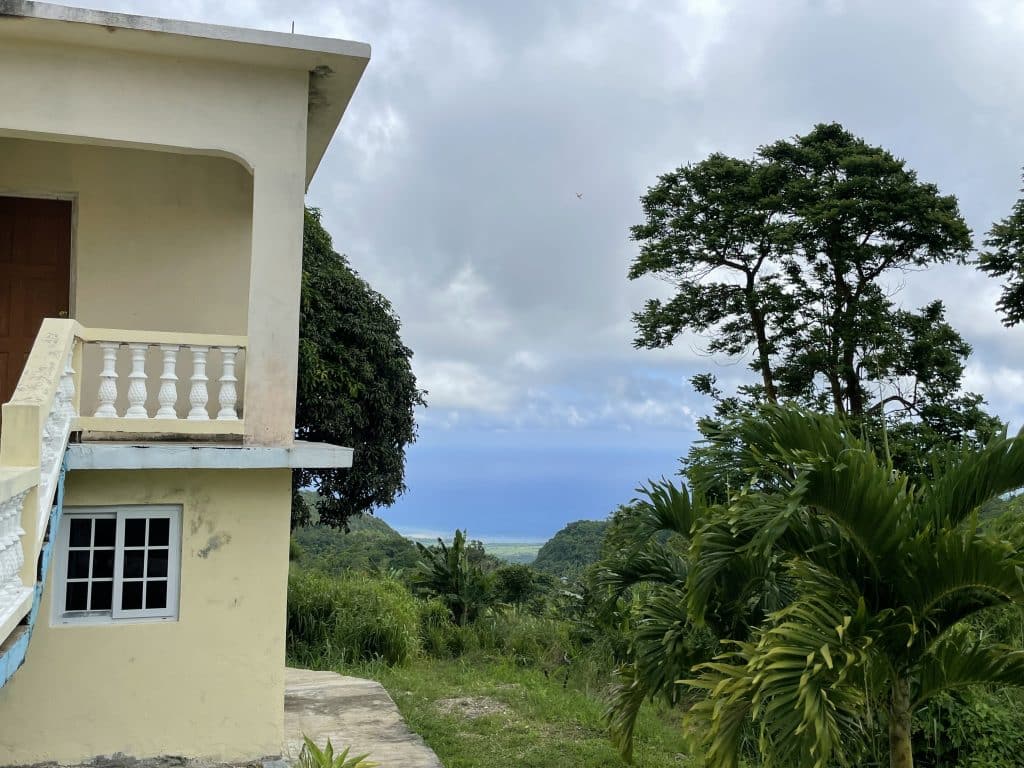
Since we were meeting in a church, the class for the second group of farmers also began with a prayer and a song, similar to my first group. This bunch of growers included some mushroom cultivators so discussing using compost as an inoculant, in the same fashion that spawn is used, made for an excellent example. After our first day everyone was excited for the following day when I would show them how to put these teachings into practice.
Teamwork
Multiple people volunteered to bring different materials for making compost, compost extract, and calcium extract. One brought a bucket, one brought eggshells, someone else a cooking pan, and another vinegar. It was a team effort that came together well. After gathering materials with a machete we put together a compost pile, where everyone learned to keep it moist and when to turn the pile. Then we made a compost extract or a liquid form of compost to get all of the beneficial biology and nutrients gained from it.
For the calcium extract, we got made a small fire going to place our pan over and heat the crushed eggshells. After we allowed them to cool down I added the vinegar and everyone was impressed with the immediate reaction causing gas bubbles to continuously flow out of the crushed shells. We ended the day by having a late lunch of tuna or corned beef sandwiches (corned beef is a popular food there).
Free For The Weekend
Damar and I had been driving several hours each day the past week and we figured the beach would be slammed with people so we relaxed at the hotel for most of the day on Saturday. I wanted to make it to the beach on Sunday so we planned on getting there early before the crowd hit. We made it to the beach on Sunday around 9am where there was already a group of people gathering and a loudspeaker blaring Jamaican gospel music.
Ochi

I wasn’t really up to do anything touristy, so after the beach we decided to drive to Ocho Rios (Jamaicans call it Ochi) to check out the city. We tried to get some Indian food but many places are closed on Sundays. Instead, we went to a grocery for a soda and snack to tide us over until we could get some jerk chicken on the way back.
We ate at an outdoor restaurant and ate our jerk chicken while fending off a few cattle egrets hoping for a free meal.
Back At The Beach
There was plenty of time left in the afternoon and we decided why not stop back at Discovery Bay beach. The DJ at the beach had switched from gospel music to dancehall by the afternoon and there was a relaxing party vibe to the whole scene.
The ocean in Discovery Bay is practically crystal clear and remains somewhat shallow throughout the cove. One can swim out a couple hundred feet and the water is only about eight feet deep with the bottom still visible. Multiple bright-colored boats are docked in the bay. One all yellow with red trim, and another light blue with darker accents, bobbing and floating in the tide.
The next day was Monday and we would be off to a whole different parish named Trelawny, to teach in a town named TROY! Can you believe it?
Troy In Troy
Monday morning we were up early for a long drive with a destination near Cockpit Country, the most diverse part of Jamaica in regards to plants and animals. A mountainous area that is much less inhabited than other parts of the island. We drove through even more tight curves and sloped terrain than the previous week. Even ending up accidentally taking a one-lane dirt road through the bush. I LOVED it.
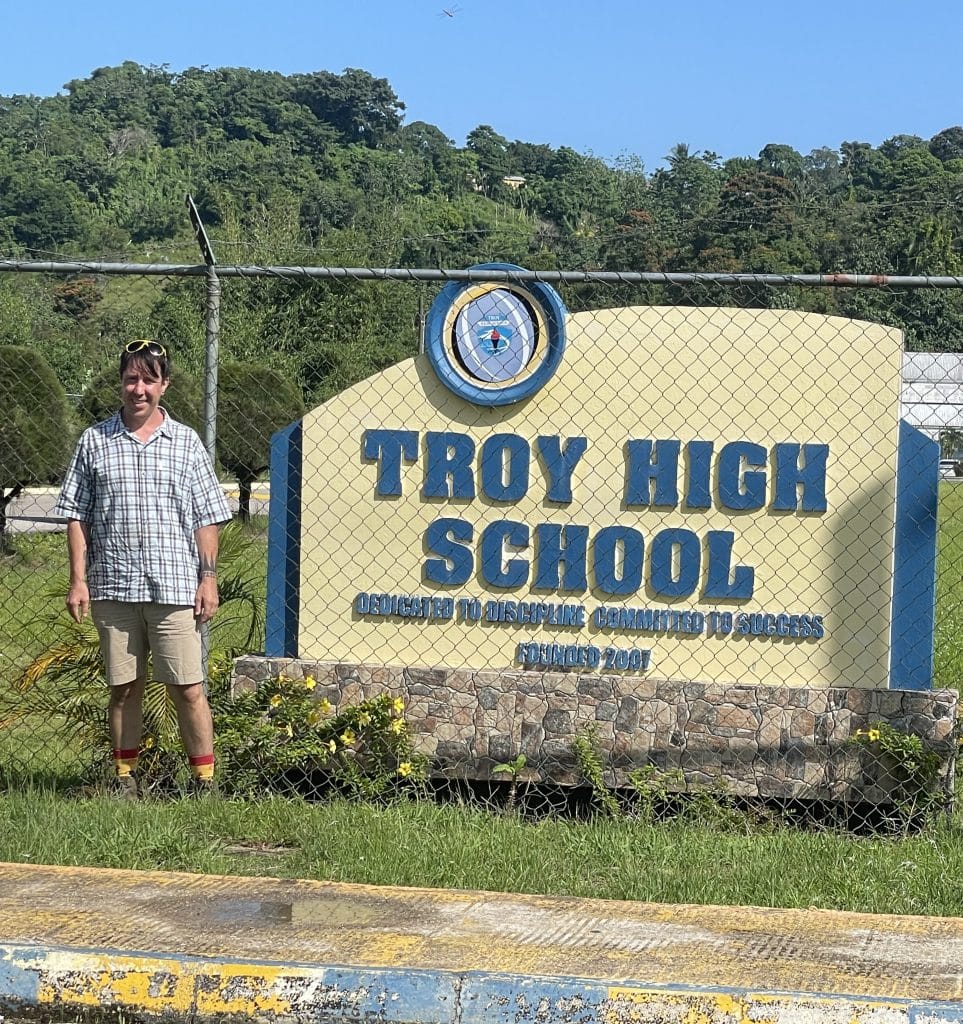
Our drive to Troy was the longest drive to a class yet. Trelawny Parish is a rather rural parishes where there appeared to be even more agriculture than other areas, especially the growing of yams. They are grown vertically to take advantage of sunlight and to make harvesting easier as the vines spikes contain spikes. Vast patches of yam plants could be seen all over the mountainsides.
These yams aren’t the kind that are similar to sweet potatoes. These are roots the sizes of human heads and limbs.
One of them being “Bun and Cheese”, a take on hot cross buns which include eating a Jamaican spiced bun with slices of Tastee cheese, a processed cheese that comes in a round can.
Summary/Wrap Up?
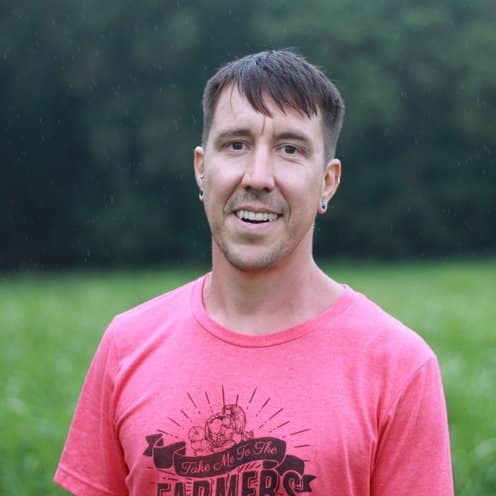
If you want to know if your soil is appropriate for your crop, or if you need help our help with anything else, engage our services today!

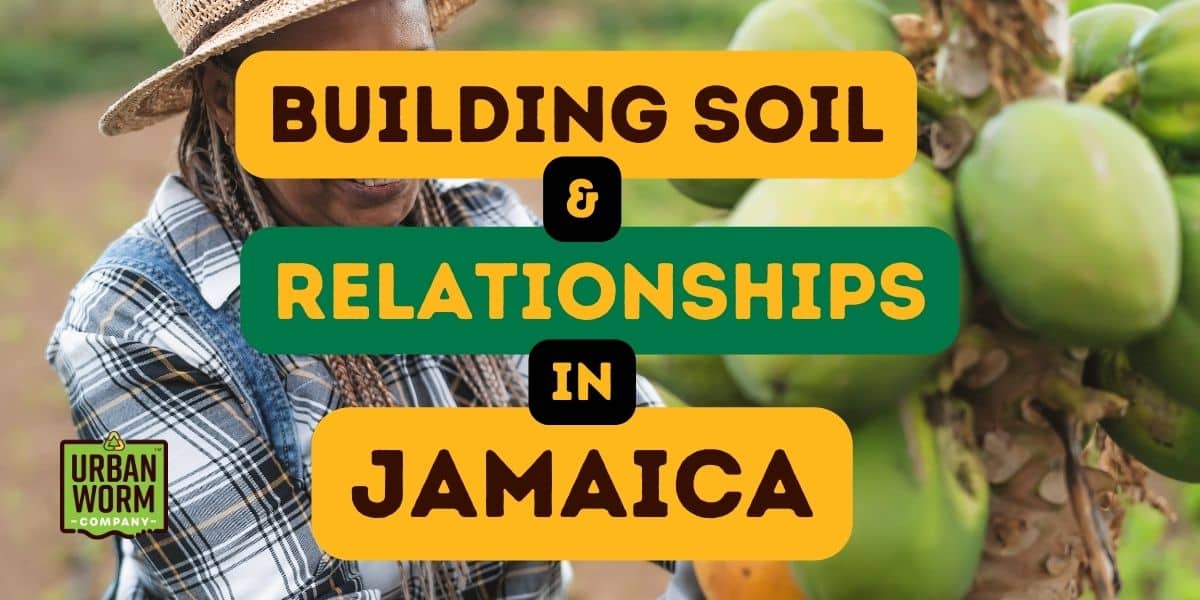
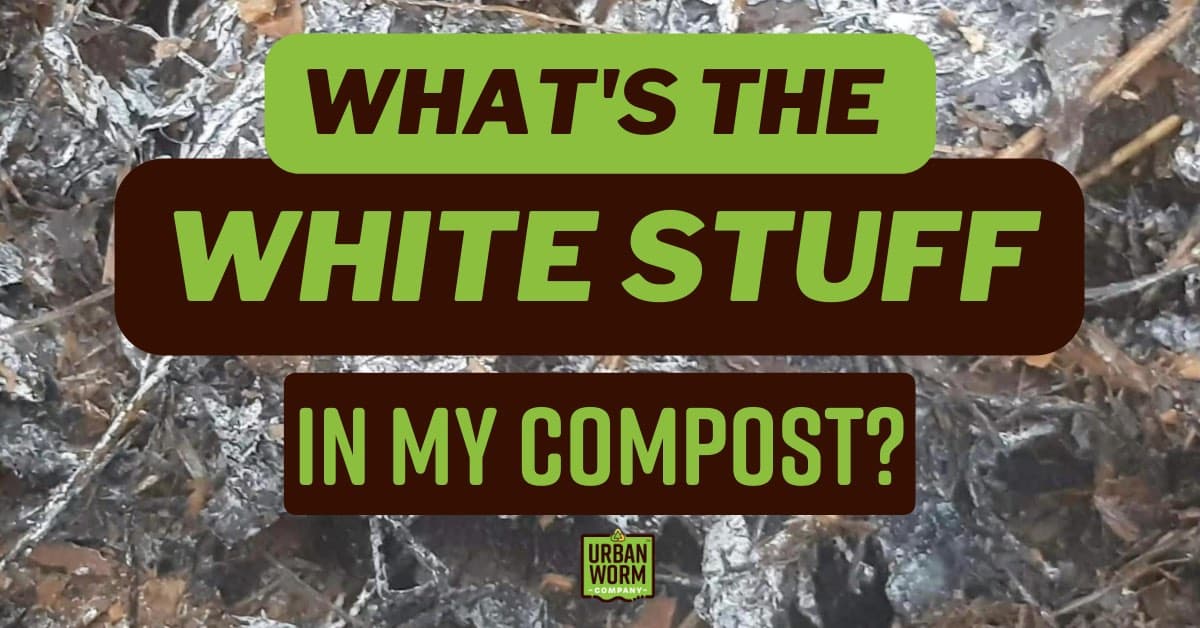
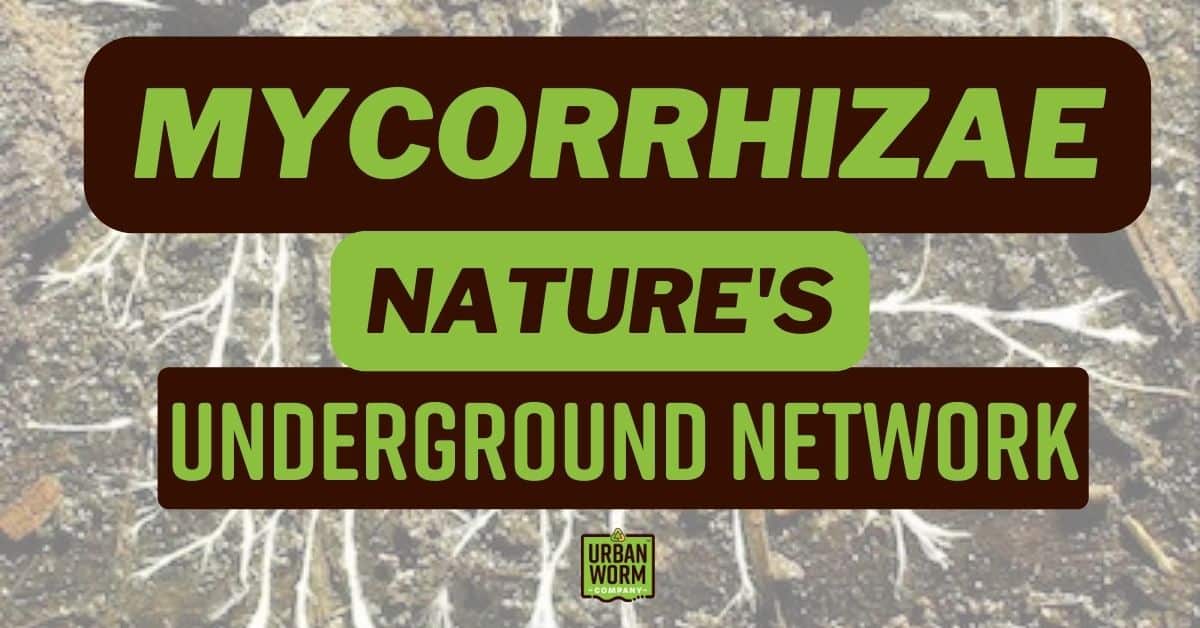
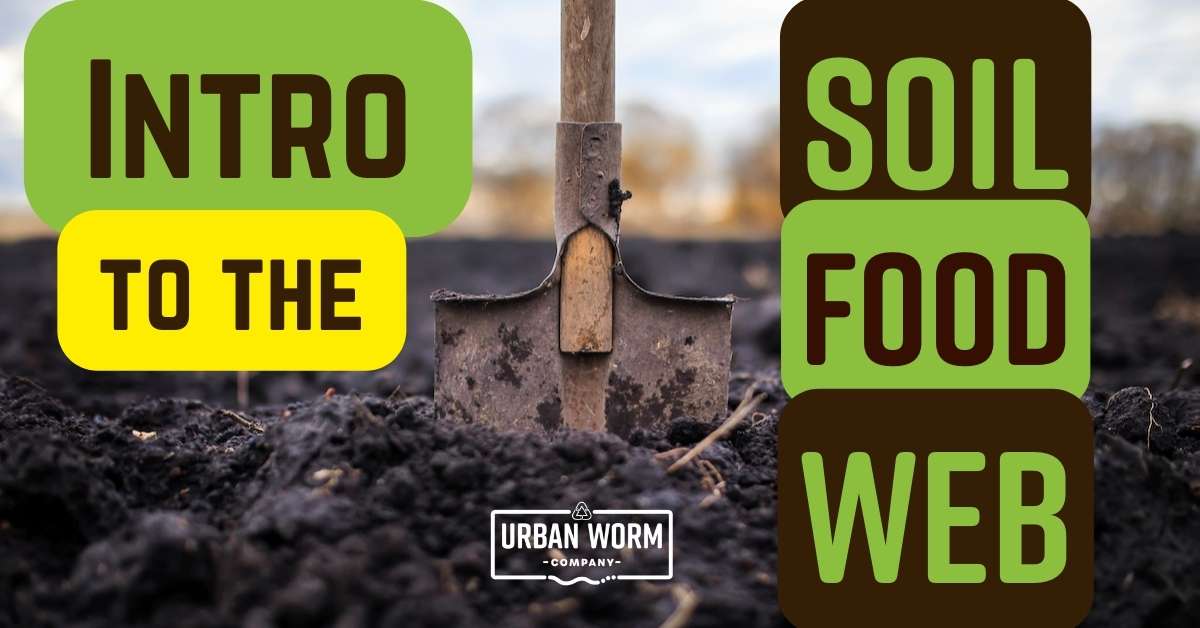
Hi
Do you have any recommendations as to where I can get red wrigglers in Jamaica?
Hey Ian
I had a lady’s information in Jamaica but I unfortunately lost all my WhatsApp messages recently when I replaced my iPhone. You can try messaging Lloyd Wiggan at Browns Town Community College.